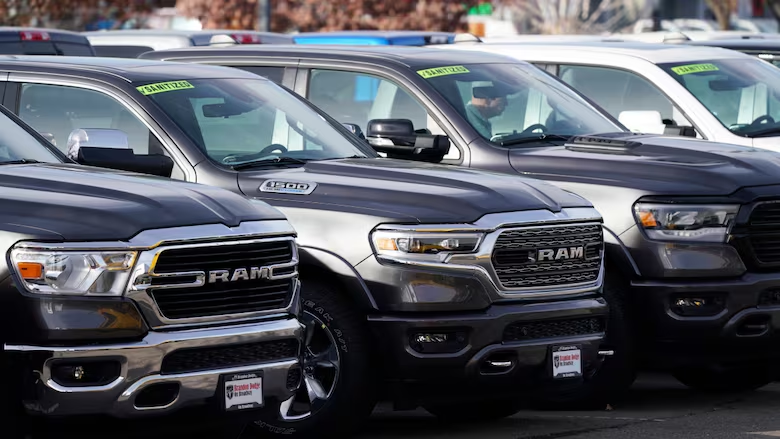Stolen vehicles have become a growing problem in Ghana, sparking warnings that the situation could discourage investors and damage the country’s reputation on both economic and diplomatic fronts.
Ebo Buckman, a leading member of the Movement for Change argued that lapses in security checks at the ports and at the Driver and Vehicle Licensing Authority (DVLA) have created loopholes that allow stolen cars to be registered and used without detection.
He voiced the risks Ghana faces if the problem is not urgently addressed, explaining that the inability of key institutions to detect stolen vehicles raises questions about the integrity of state systems and the seriousness of the authorities in tackling organized crime.
“If people don’t trust your system, if they think you are a country of thieves, then investors would want to be careful entering these countries.”
Ebo Buckman
He warned that Ghana’s credibility could be questioned if the perception grows that it has become a haven for criminal syndicates.
He pointed out that lapses in both the ports and DVLA suggest that the issue goes beyond mere oversight, hinting at possible collusion between syndicates and officials.
“If our ports fail to identify those cars and the DVLA also fails to detect them, then it means something is wrong somewhere. We must tighten security at the ports, entry borders, and at the DVLA.”
Ebo Buckman
For him, the consequences go beyond security and spill into every aspect of national life.
He argued that the nation’s diplomatic standing, economic image, and even its political stability could all be undermined if stolen vehicles continue to pour into the country unchecked.
Meanwhile, concerns about stolen vehicles escalated recently when INTERPOL’s Safe Wheels operation revealed that Ghana was among 12 West African countries facing a surge in stolen cars being trafficked into the region.

According to the operation’s findings, Ghana alone receives about 900,000 second-hand vehicles annually, a figure that provides fertile ground for international car theft syndicates.
The revelation has heightened calls for the government and security agencies to take swift action to prevent the country from becoming a hotspot for vehicle trafficking.
Experts say the scale of the influx underscores how vulnerable Ghana’s systems are to manipulation.
With thousands of vehicles entering the country every month, oversight agencies face an uphill task in verifying authenticity and ensuring that stolen cars do not slip through.
EOCO Identifies High-Risk Brands of Stolen Vehicles
The Economic and Organised Crime Office (EOCO) raised an alarm over the influx of stolen vehicles. Its investigations revealed that certain brands are more frequently linked to international theft rings.
Leo Anthony Siamah, Head of EOCO’s Legal Unit, explained that models such as Honda CR-Vs, Ford F-150 pickups, Range Rovers, and Dodge trucks consistently dominate the list of suspicious vehicles recovered.

He urged car buyers in Ghana to be especially vigilant when dealing with these models, stressing that their prevalence in stolen vehicle cases should be considered a major red flag.
He advised that prospective buyers, particularly those looking at recent models such as 2023 and 2024 editions, should take extra steps to verify ownership history and legitimacy. “That should point you to doing extra for instance, go to Interpol to find out whether or not that car’s status is stolen,” he explained.
Siamah clarified that while the highlighted brands top the list, EOCO does not limit its investigations to them. The agency has also tracked and seized stolen Toyota Highlanders and Honda Accords, as well as other vehicles that do not appear as frequently in statistics.
This, he said, underscores the fact that all buyers, regardless of the vehicle brand they intend to purchase, should approach the market with caution.
The influx of stolen vehicles has implications that reach far beyond the automobile market. For investors, the issue is tied to broader concerns about Ghana’s ability to enforce laws and protect property rights.
If Ghana is perceived as unable to control such organized crimes, it could deter the confidence of foreign businesses seeking to enter or expand in the country.
For ordinary Ghanaians, the risks are more personal. Unknowingly purchasing a stolen vehicle could lead to financial loss if the car is later confiscated during investigations.

It also means consumers face the burden of additional checks and costs when attempting to verify the authenticity of their vehicles.
Security experts argue that the problem will only worsen unless immediate reforms are implemented at ports and licensing offices.
They stress that government agencies must enhance collaboration with international organizations such as INTERPOL and invest in stronger technological systems to track vehicles more effectively.
Ultimately, tackling the influx of stolen vehicles is not just about protecting the local car market but about safeguarding Ghana’s international reputation and economic stability.
As analysts continue to sound the alarm, the urgency for government action grows clearer by the day.
READ ALSO: Gold Fields Reports 181% surge in H1 2025, Reaffirms Growth Plans in Ghana
Keyword: Stolen Vehicles























